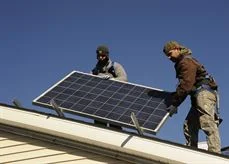Clean Coal has become a popular term, especially in the Kentucky tax industry. 2L staffer Bennett Tuleja evaluates the statutory tax credit in Kentucky and explores how effective it has been at reducing coal emissions & whether it has had any positive impact since its implementation in 2019.
The Fight Over Tribal Authority Under the Clean Water Act
2L staffer, Zachary Mills, discusses the importance of the Clean Water Act and how the act continues to change through public and presidential pressure. Mills focuses explicitly on Section 401 of the Act, where it designates state and tribal governments as “certifying authorities” for these licenses, but after Trump’s Executive Order 13956, the EPA narrowed Section 401. Mills highly encourages courts to truly realize the change to Section 401 of the Clean Water Act does more harm than good for the Native American communities.
Lost in Translation: Why America Needs to Remember the Purpose of the Antiquities Act
2L Staffer Georgiana Ledford discusses the Antiquities Act of 1906, which allows the President to transform a tract of land into a national monument. Ledford discusses how presidents have treated this power and how people have mixed options on this Act as some see it as a use of politics. Ledford strongly believes that Americans should put politics behind them and remember why Congress passed this Act.
Environmental Impact of Trump Border Wall: Where Do We Go from Here
With Joe Biden’s executive order halting the construction of the border wall, the future of the wall remains unclear. One thing that we do know is that the wall has already left an impact on the southwest states’ water, wildlife, and vegetation. In this piece, staffer Nick Ellis highlights the environmental effects of the wall and urges the new administration to keep the environment in mind when making decisions about the wall.
A Call to Modify the Section 201 Safeguard for the Solar Panel Industry
After three months to consider the USITC’s submission, President Trump elected to implement a tariff-quota on solar cell imports. Following the President’s announcement, stocks in U.S. based companies that could benefit as a result of the tariff imposition on solar equipment experienced an aggressive increase. Conversely, the loss of twenty-three thousand jobs and the delay or elimination of billion-dollar investments seems to be probable.
Profits Over Life: Trump DOI Reverses Traditional Protection for Migratory Birds
A Monumental Mess: Can President Trump’s Administration Find Legal Ground to Support Its Decision to Modify National Monuments?
On Monday, December 4, 2017, President Trump signed presidential proclamations to shrink both the Bears Ears and Grand Staircase-Escalante National Monuments, resulting in the largest reduction of public-lands protection in the history of our nation. While some have supported the decision, there are many others who have strongly opposed it, bringing an unexplored legal question into the limelight: Does the 1906 Antiquities Act give the president the power to modify or eliminate national monuments, as well as designate?
Agricultural Crisis: How Mass Deportations Hurt America
While some in Washington have rejected the idea of mass deportation, the President has continued to defer his decision for undocumented immigrants until after the border is secured. Should the President continue this trend of fulfilling campaign promises by implementing a mass-deportation styled immigration crackdown, it would surely spell disaster. One issue that should raise concerns across ideological-lines, is the impact that mass deportations would have on the domestic agricultural economy of the United States.
“Wherever there is no consensus that can be achieved, disagreement has to be made clear.”
German Chancellor Angela Merkel recently closed the G20 summit citing the “unfortunate” position the United States was in compared to the other nineteen members of the G20 who remain committed to the Paris climate accord. The Chancellor’s statements were seemingly borne from the intention of ringing the proverbial bell, however, President Trump’s position on climate change, somewhat uncharacteristically, has stood firm since he learned “[t]he concept of global warming was created by and for the Chinese in order to make U.S. manufacturing non-competitive.”














